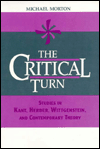Right now I have arrived almost to the middle of Nicholas Carr’s book The Shallows: What the Internet Is Doing to Our Brains. His book is a techno-criticism focusing on the ways in which our technology is changing the way in which we behave. His basic argument is that our attention spans are going the way of the Dodo and that we will no longer be able to read, write or think in the way we used to.
Implicitly in this criticism is that we are much worse off as a species for these developments.
Carr is an interesting writer and his book is filled with all the rights stories about how advances in technology have changed the way in which we think. He brings up Plato’s criticism of writing in Phaedrus where writing is the appearance of knowledge and spends time with Gutenburg, the invention of spaces between words and silent reading. He uses McLuhan and Winner to show both the role of technology and determinism. It is a very good read.
But the problem is that Carr does not really attempt to analyze the effects of changes. Through his arguments we get the impression that hypertext changes everything, Wikipedia can be dangerous and Twitter must be downright evil. And he may be right.
My problem is that he generalizes his lack of ability to read into a full-blown criticism of technology. Sure he finds arguments that support his claim but it is still a massive generalization. It may be that technology has re-wired his brain. Or it may be that he lacks the skill sets to cope with the technology or it may be that he is no longer interested in reading the same way he used to be.
The interesting thing in his arguments is that he presents them in a book, albeit a light popular science book but still a book. If we are no longer capable of reading then he shouldn’t waste his time on this medium of the past. Or maybe he is just catering to the group of technophobes who want to say things were better before…
In his critique of technology he reserves a special place for the ebook reader – which I find even more interesting as I am reading his book on a kindle. He means that writing and books will be more and more catered to the lowest common denominator, which is probably true. But what’s new about this? Books have not always been weighty works of philosophy. Pulp fiction, cowboy literature and simple romances are surely a huge market. There has always been a huge market for the lighter works or trash literature as my father would have called them. Trash literature, comics and television naturally formed the way I am and I still happily read many of these genres – but this does not mean I am incapable of reading more difficult works.
At times I suspect that he is not as critical as he claims but he is trolling for an argument, provoking and posturing for a fight. But Carr is well worth reading – even when he is wrong.











